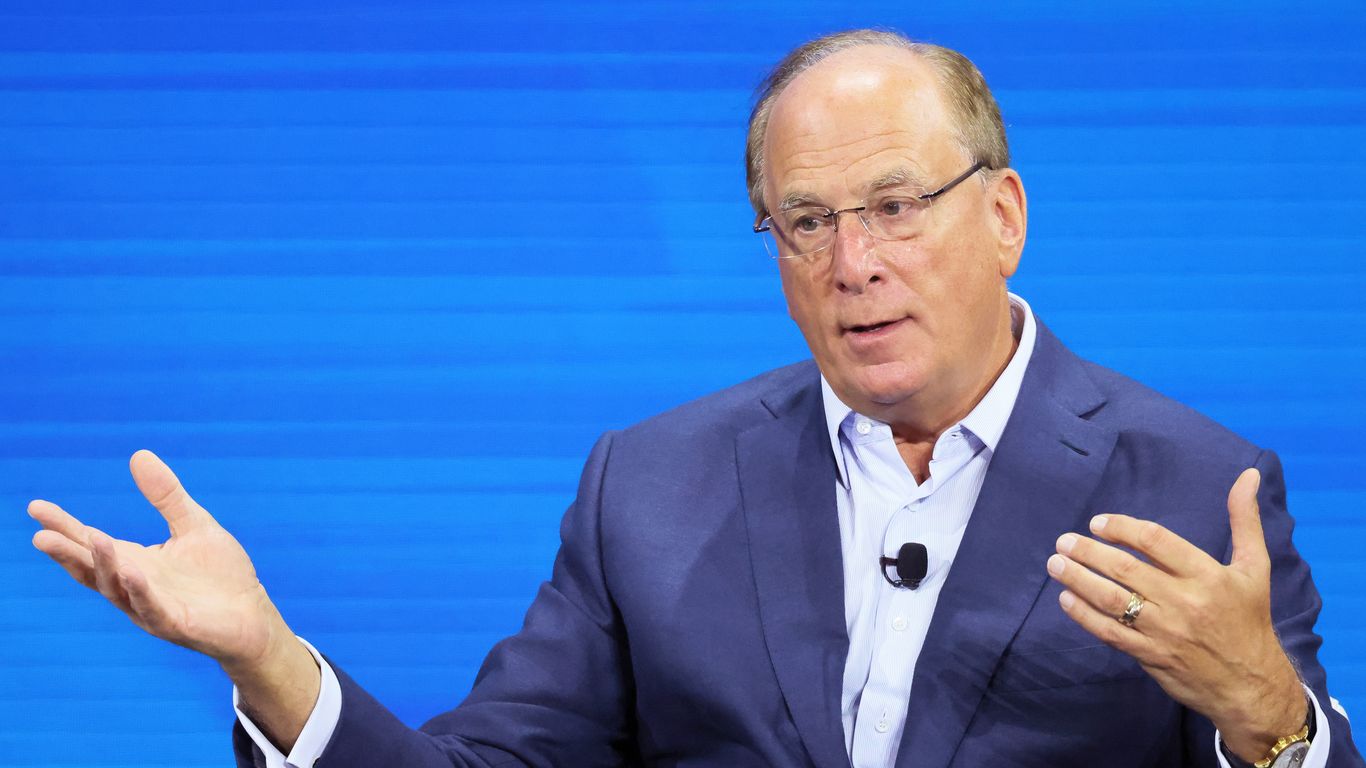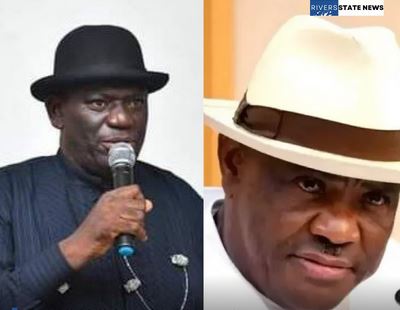
BlackRock CEO Larry Fink reassures investors that this moment of economic anxiety will pass in his annual letter out Monday morning.Why it matters: Fink runs the world's biggest asset manager and is hugely influential — his widely read letter typically reflects the business trends of the current moment. This year it comes at a time of high market uncertainty, as tariff disruptions rock the business world.
Where it stands: Fink treads cautiously in the 27-page letter, never explicitly mentioning President Trump, and only touches glancingly on politics at the very top."I hear it from nearly every client, nearly every leader—nearly every person—I talk to: They're more anxious about the economy than any time in recent memory. I understand why.

But we have lived through moments like this before. And somehow, in the long run, we figure things out," he says in a draft of the letter viewed by Axios. The intrigue: Fink's letter comes at a politically fraught moment for BlackRock.
The firm's deal to buy two Panama Canal ports from Hong Kong's CK Hutchison has become a political football among the governments of the U.S., Panama and China.
What looked like an off-ramp for U.S. complaints that China had too much influence at the canal now threatens to become a bargaining chip in a larger geopolitical reordering.
Between the lines: In past years, Fink has used the letter to espouse views on topics that are now toxic flashpoints for the Trump administration — like climate change, flexibility for workers or corporate social responsibility.This year, as fierce backlash has grown, the firm joined many others in walking back its DEI policies.Zoom in: Instead of politics, Fink focuses on private markets, a more opaque area of investment that's ballooned in popularity in recent years — and where BlackRock has made a series of deals over the past year, trying to become a dominant player.
Some letter highlights:With deficits ballooning, governments are going to need private-market money to build bridges, power plants and other critical public buildings and utilities, he writes. "The markets are eager to step in where governments and corporations are stepping out."Instead of a traditional 60/40 split between stocks and bonds, Fink wants investors to diversify into these private market assets, a mix he calls 50/30/20 (stocks, bonds, private assets like infrastructure and real estate).
"Economic democracy": Fink says capitalism has worked for "too few people" and wants to give more investors access to those private markets. Not coincidentally, bringing more investors into the markets is good for the firm's bottom line.Fink endorses the idea of baby bonds, proposed by Sens.
Cory Booker (D-N.J.) and Todd Young (R-Ind.
). "Imagine a child born today whose personal wealth grows in step with America's. That's what an economic democracy could look like: a country where everybody has a new avenue— investing—to pursue happiness and financial freedom.
"Dollar dominance under threat: "The U.S. has benefited from the dollar serving as the world's reserve currency for decades.
But that's not guaranteed to last forever," Fink warns."If the U.S.
doesn't get its debt under control, if deficits keep ballooning, America risks losing that position to digital assets like Bitcoin."BlackRock was the first to launch a Bitcoin spot ETF in 2024 — a move that helped legitimize cryptocurrency in the traditional investing world.Energy pragmatism: The world faces growing demand for energy that can't be filled with renewables alone, he said.
Fink makes the case for nuclear power, an idea gaining steam as demand for electricity — fueled by AI — is surging.He also joins a bipartisan chorus pushing for permit reform to make it faster and easier to get things built.💭 Thought bubble, from Axios Generate's Ben Geman: The annual letter is a sign of the times from Wall Street — light on climate.
But that said, Fink makes a competition-based case for clean tech.He notes China is aggressively building nuclear plants because "they see decarbonization as a way to own the future of industry."Fink also shouts out Chinese electric vehicle heavyweight BYD's remarkable rise.
The bottom line: Finance executives like Fink are staying in their lane these days. Ben Geman contributed. Go Deeper: Read Larry Fink's letter to investors.















